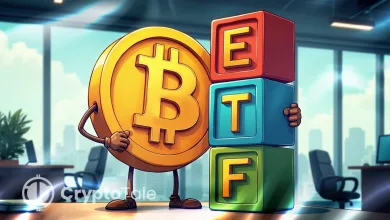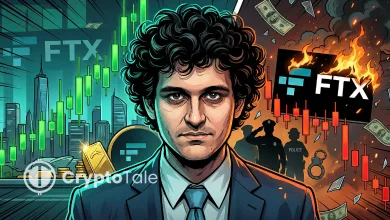Kraken Chief Sethi Blasts FCA’s “Cigarette-Box” Crypto Rules

- Kraken’s Arjun Sethi says UK crypto rules confuse investors and block participation.
- FCA’s strict framework delays trades and limits access to key digital products.
- Sethi warns that overregulation risks pushing innovation and users out of the UK market.
Kraken’s co-chief executive, Arjun Sethi, has criticized the United Kingdom’s crypto marketing rules, calling them excessive and harmful to investors. He said the Financial Conduct Authority’s framework adds delays and discourages retail participation. Sethi argued that the rules create confusion instead of protection. He compared them to cigarette warnings, saying they scare users instead of guiding them.
Sethi told the Financial Times that every crypto website in the UK now shows alarming messages. He described it as “use this and you’re going to die.” According to him, the many steps required to complete a transaction frustrate users. “Disclosures are important,” he said, “but if there are 14 steps, it’s worse.”
FCA’s Strict Crypto Rules Face Growing Criticism
The FCA introduced strict financial promotion rules in late 2023. Firms must show risk warnings, avoid investment incentives, and check if users understand crypto risks. These measures apply to all companies marketing to UK residents. The regulator says these rules help people make informed choices.
Sethi disagreed, saying the process blocks some users from investing at all. He warned that too many restrictions harm innovation. He believes investors lose access to legitimate opportunities. He said the current system favors complexity over fairness.
Executives in the digital asset sector have long said Britain’s stance is too strict. They claim the FCA’s approach limits competition and growth. The debate intensified this year as the United States became more open to digital assets. Industry leaders say this difference could push innovation abroad.
The FCA has also stepped up enforcement. In October, it filed a lawsuit against exchange HTX for breaking promotion rules. HTX is linked to crypto entrepreneur Justin Sun, who has invested heavily in Trump’s digital ventures. The case highlights the growing tension between regulators and exchanges.
Kraken Pushes Expansion as UK Rules Limit Investor Access
Kraken, founded in 2011, is among the world’s largest crypto exchanges by trading volume. Sethi co-leads the company with David Ripley and also chairs Tribe Capital. He said tighter UK rules leave British users behind. He estimated they cannot access about three-quarters of the products available to US investors.
Those products include higher-yield investments and decentralized finance lending options. Sethi said these restrictions reduce user choice. He argued that investors should decide for themselves after proper disclosure. He warned that constant barriers only drive them toward unregulated markets.
Kraken is preparing for a public listing, possibly in 2026. Bloomberg reported that Morgan Stanley and Goldman Sachs are advising on the offering. The exchange sees this as a major milestone in its global growth plan. Sethi said Kraken will continue expanding despite uneven regulation.
Related: Kraken Launches Crypto-Collateral Futures in Europe
In March, Kraken announced a $1.5 billion deal to acquire derivatives platform NinjaTrader. The acquisition strengthens its position in futures and options markets. The company said it aims to serve global clients while adapting to regional rules. The deal marks another step toward building a broader trading ecosystem.
The FCA has hinted at flexibility in recent months. In September, its executive director for payments and digital finance, David Geale, said some rules could be adjusted. He mentioned removing the post-purchase “cooling-off” period for crypto buyers. The regulator admitted that crypto’s price volatility makes that rule impractical.
Sethi’s comments reflect a wider struggle between innovation and oversight. Crypto firms want fair rules without heavy restrictions. Regulators insist on investor protection. For now, the standoff continues. Kraken’s warning is clear: the UK’s “cigarette-box” approach might protect investors—but it could also stall progress in crypto.




